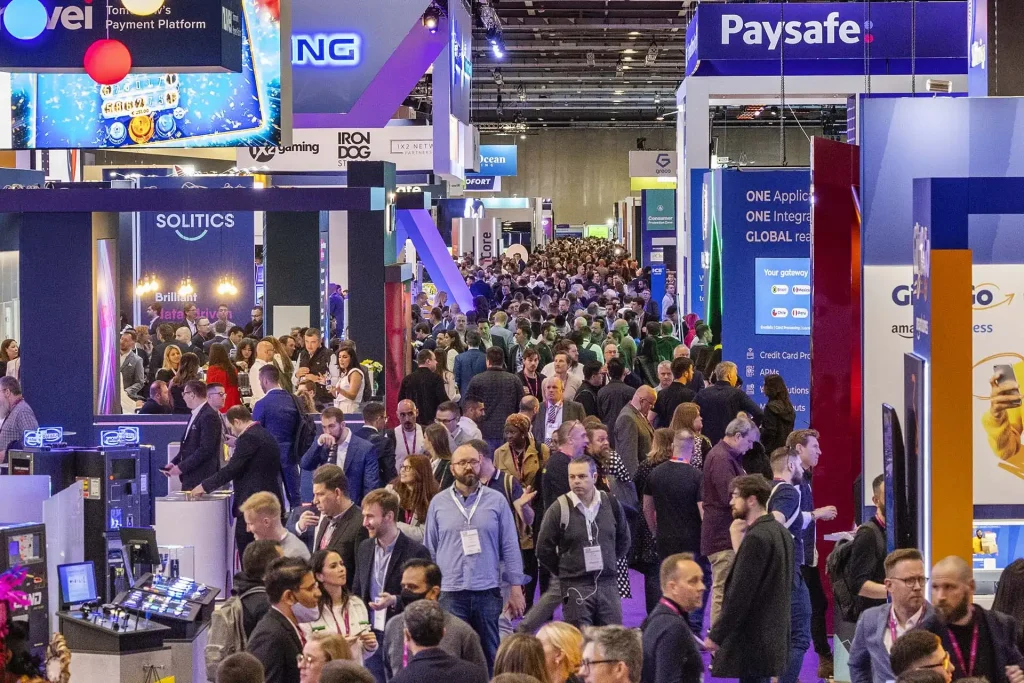iGaming events offer prime opportunities for networking and growth. This guide outlines key strategies—from goal setting to lead generation and sponsorship optimization—to maximize ROI and drive measurable success.
Maximizing ROI at iGaming Events: Strategic Guide

Maximizing ROI at iGaming Events: Strategic Guide
Maximizing ROI at iGaming Industry Events
In the fast-paced world of the iGaming industry, events like trade shows, seminars, and conferences provide unparalleled opportunities for networking, brand visibility, and lead generation. However, to truly maximize return on investment (ROI), strategic planning and execution are essential. From pre-event preparation to post-event analysis, this guide outlines practical steps to ensure every participation in iGaming events delivers measurable value for operators, affiliates, and stakeholders across the sector.
Pre-Event Strategy
Goal Setting & KPIs
Establish clear goals and key performance indicators (KPIs) before attending an event. Whether it’s lead generation, brand awareness, or strategic partnerships, define success metrics to evaluate performance effectively.
Budget Allocation
Allocate your budget wisely by prioritizing activities like booth design, sponsorship packages, and travel. Plan ahead to take advantage of early-bird discounts and group booking benefits.
Team Preparation
Prepare your team by assigning roles for networking, lead capture, and on-site coordination. Conduct training sessions to ensure everyone understands event objectives and their responsibilities.
Target Audience Research
Identify your target audience before the event. Research attendee demographics, VIP lists, and competitors to align your strategy with potential clients and partners.
Smart Event Selection
Event ROI Analysis
Evaluate the potential ROI of attending an event. Consider factors like audience size, relevance to your goals, and past success rates to determine the value of participation.
Cost-Benefit Assessment
Analyze the costs of attending versus the benefits. Include factors like travel, sponsorship, and marketing expenses, and compare them to projected lead generation and brand exposure.
Audience Match Evaluation
Choose events that align with your target audience. For example, events focused on sports betting might differ in value compared to those centered on online casinos and payment solutions.
Competition Analysis
Research which competitors are attending. This provides insight into market trends and helps you tailor your approach to stand out.
Networking Optimization
Pre-scheduled Meetings
Schedule meetings with high-priority attendees before the event. Use event platforms or social media to connect with decision-makers and secure valuable face-to-face time.
VIP Contact Prioritization
Focus on engaging VIPs and key stakeholders who can drive significant business impact. Personalize your outreach to make a lasting impression.
Strategic Partnership Planning
Identify potential partners and plan how to approach them with mutually beneficial proposals. Collaborate on shared goals to form long-term alliances.
Lead Qualification Process
Develop a system to qualify leads during the event. Focus on quality over quantity to ensure your follow-ups are targeted and effective.
Booth Investment Strategy
Location Optimization
Choose a high-traffic booth location to maximize visibility. Prime spots are often near entrances or key event features.
Design ROI Factors
Invest in visually appealing booth designs that reflect your brand and attract attendees. Include interactive elements to engage visitors.
Staff Training
Train your booth staff on how to pitch, interact with potential leads, and capture contact information efficiently.
Tech Integration Cost-Benefit
Integrate technology like touchscreens or virtual reality to create an engaging experience. Evaluate the costs against the potential to draw in qualified leads.
Lead Generation Tactics
Digital Lead Capture
Use digital tools like lead capture apps to streamline the process of collecting attendee information.
QR Code Implementation
Implement QR codes at your booth for attendees to easily access brochures, videos, or your website.
Social Media Integration
Leverage social media channels to promote your booth and encourage attendees to visit. Use event hashtags to increase visibility.
Real-time Data Collection
Track leads in real-time during the event to identify hot prospects and prioritize follow-ups.
Content Marketing ROI
Presentation Strategy
Deliver engaging presentations that highlight your expertise. Use case studies and success stories to demonstrate value.
Speaking Opportunities
Secure speaking slots to position your brand as a thought leader in the iGaming industry.
Content Distribution
Share event-related content via blogs, videos, and social media to extend your reach beyond the event itself.
Brand Visibility Metrics
Track metrics such as website traffic, social media engagement, and brand mentions to measure the success of your content efforts.
Sponsorship Optimization
Package Selection Criteria
Choose sponsorship packages that align with your objectives, such as increasing brand visibility or targeting a specific audience.
Branding Opportunities
Maximize branding through on-site signage, digital ads, and branded giveaways to leave a lasting impression.
Visibility Maximization
Ensure your sponsorship provides ample exposure, such as speaking slots or logo placements on event materials.
Value-Add Negotiations
Negotiate additional benefits, such as exclusive networking opportunities or extended digital promotions.
Real-time Performance Tracking
Lead Scoring Systems
Implement lead scoring to prioritize high-value prospects for immediate follow-up.
Engagement Metrics
Track booth visits, attendee interactions, and social media engagement during the event.
Cost per Lead Analysis
Calculate the cost per lead to assess the efficiency of your event marketing efforts.
Conversion Tracking
Monitor conversions from leads to sales to measure the direct ROI of the event.
Post-Event Conversion
Follow-up Strategies
Follow up with leads promptly after the event. Use personalized emails or calls to re-establish connections and move prospects further down the sales funnel.
Lead Nurturing
Develop a nurturing plan for leads that require more time to convert. Provide them with relevant content and updates to keep your brand top-of-mind.
Deal Closing Tactics
Focus on converting high-priority leads into deals by addressing their specific needs and objections.
Long-term Value Creation
Evaluate how the event contributes to long-term business growth through partnerships, brand awareness, and market positioning.
Data Analysis & Reporting
ROI Calculation Methods
Use formulas to calculate event ROI, such as (Revenue – Costs) / Costs, to quantify success.
Performance Metrics
Analyze metrics like lead-to-sale ratios, cost per lead, and engagement levels to evaluate performance.
Success Indicators
Identify key success indicators, such as revenue generated, new partnerships, or brand exposure achieved.
Future Planning Insights
Use data from the event to refine strategies for future participation and improve ROI.
Cost Management
Travel Optimization
Reduce travel costs by booking in advance and negotiating group rates.
Resource Allocation
Allocate resources efficiently to focus on high-impact activities like booth design and lead generation.
Technology Investment
Invest in cost-effective technology solutions to enhance your event presence without overspending.
Staff Expenses
Optimize staff expenses by sending a lean, well-prepared team to the event.
Digital Integration
Virtual Component ROI
Participate in or host virtual components to reach a broader audience and reduce costs.
Hybrid Event Strategy
Combine physical and digital engagement to maximize your reach and ROI.
Tech Stack Investment
Invest in a robust tech stack to streamline lead capture, engagement, and post-event follow-ups.
Digital Asset Leverage
Repurpose event content into digital assets, such as blogs and videos, to extend the value of your participation.
FAQ
- What’s the average ROI for iGaming events?
The average ROI varies but can range from 200–500% depending on event size and strategy. - How quickly should you follow up with leads?
Follow up within 48 hours to maintain momentum and capitalize on attendee interest. - Which metrics matter most for ROI tracking?
Key metrics include lead-to-sale ratios, cost per lead, and total revenue generated. - How to justify event budget to management?
Use projected ROI, past performance data, and alignment with strategic goals to justify the expense. - What’s the optimal team size for events?
A team of 2–5 members is typically sufficient, depending on the event’s size and objectives.
Fictional Real-World Example: Maximizing ROI at ICE London
Case Study: BetTech Solutions at ICE London
ICE London is one of the world’s largest iGaming industry trade shows, bringing together operators, affiliates, regulators, and technology providers. It serves as a global hub for networking, product launches, and industry insights across sectors like sports betting, online casinos, esports, payments, and compliance.
Background:
BetTech Solutions, a mid-sized iGaming software provider, aimed to boost brand visibility and generate high-value leads at ICE London, one of the industry’s largest events.
Strategy & Execution:
- Pre-Event Planning:
- Set a clear goal: Secure 20+ high-value leads and 5 partnership discussions.
- Optimized budget by booking early-bird sponsorship and securing a prime booth location.
- Scheduled pre-event meetings with key stakeholders via LinkedIn and event platforms.
- On-Site Strategy:
- Used an interactive booth with VR product demos to attract traffic.
- Lead capture via QR codes streamlined data collection and qualification.
- Spoke on a panel discussion to position the brand as a thought leader.
- Post-Event Follow-Up:
- Personalized outreach to top leads within 48 hours.
- Follow-up strategy included targeted email campaigns with exclusive trial offers.
Results:
✅ 30+ high-value leads secured
✅ 3 partnership deals finalized within 3 months
✅ 50% increase in brand engagement on LinkedIn
This structured approach helped the fictional BetTech Solutions achieve a 400% ROI, proving that strategic planning and execution at iGaming events can drive significant business success.








